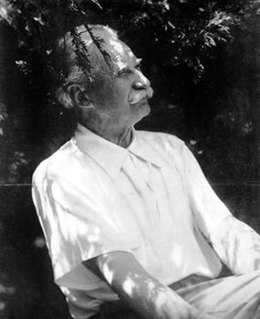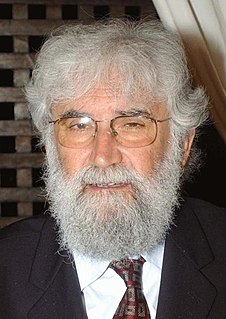A Quote by Nirmala Srivastava
But the quality of human beings is only one - and that is how much they love and forgive.
Related Quotes
There is no limit to suffering human beings have been willing to inflict on others, no matter how innocent, no matter how young, and no matter how old. This fact must lead all reasonable human beings, that is, all human beings who take evidence seriously, to draw only one possible conclusion: Human nature is not basically good.
I've come to learn as an adult that love is a hell of a drug. It's one of the most dangerous things that human beings can have. It's also one of the most beautiful things that human beings can possess because love, on one hand, gives you the ability to care for a human being sometimes more than you would care for yourself. Love, unfortunately, sometimes gives you the ability to forgive somebody and blind yourself to the truth.
And people who believe in God think God has put human beings on earth because they think human beings are the best animal, but human beings are just an animal and they will evolve into another animal, and that animal will be cleverer and it will put human beings into a zoo, like we put chimpanzees and gorillas into a zoo. Or human beings will all catch a disease and die out or they will make too much pollution and kill themselves, and then there will only be insects in the world and they will be the best animal.
We're human beings we are - all of us - and that's what people are liable to forget. Human beings don't like peace and goodwill and everybody loving everybody else. However much they may think they do, they don't really because they're not made like that. Human beings love eating and drinking and loving and hating. They also like showing off, grabbing all they can, fighting for their rights and bossing anybody who'll give them half a chance.
If we human beings rely only on material development, we can’t be sure of a positive outcome. Employing technology motivated by anger and hatred is likely to be destructive. It will only be beneficial if we seek the welfare of all beings. Human beings are the only species with the potential to destroy the world. Because of the risks of unrestrained desire and greed we need to cultivate contentment and simplicity.
My observation of the Universe convinces me that there are beings of intelligence and power of a far higher quality than anything we can conceive of as human; that they are not necessarily based on the cerebral and nervous structures that we know, and that the one and only chance for mankind to advance as a whole is for individuals to make contact with such beings.
How can we encourage other human beings to extend their moral sympathies beyond a narrow locus? How can we learn to become mere human beings, shorn of any more compelling national, ethnic, or religious identity? We can be reasonable. It is in the very nature of reason to fuse cognitive and moral horizons. Reason is nothing less than the guardian of love.
Feminism is really the right of women to be full human beings and to not be defined only by their childbearing function. Feminism is really the right of women to be human beings. That's it, yet that's so frightening to a lot of people. A full human being wants satisfying work and love. A full human being is entitled to both, and is not simply defined by only one aspect of her being.
Artists use frauds to make human beings seem more wonderful than they really are. Dancers show us human beings who move much more gracefully than human beings really move. Films and books and plays show us people talking much more entertainingly than people really talk, make paltry human enterprises seem important. Singers and musicians show us human beings making sounds far more lovely than human beings really make. Architects give us temples in which something marvelous is obviously going on. Actually, practically nothing is going on.































